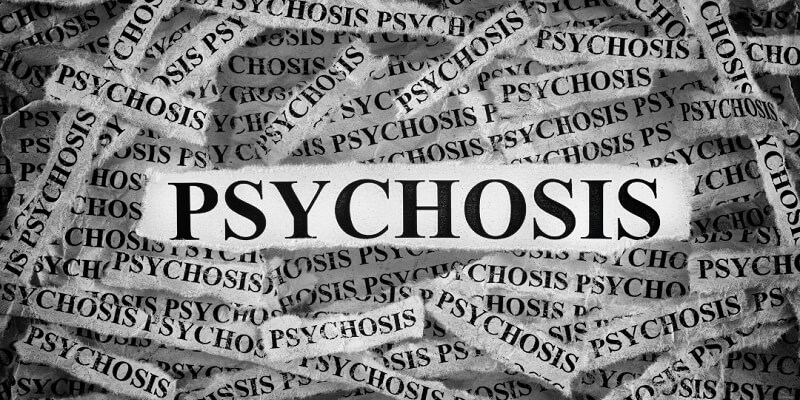What is Psychosis?
Psychosis is a mental health condition where an individual experiences a distorted relationship with reality. This can include symptoms such as hallucinations, delusions, and sometimes a lack of motivation or social withdrawal. Psychosis is not a disease itself but a symptom of several underlying conditions, which could be mental health disorders, neurological diseases, or substance abuse.
Symptoms of Psychosis
Some common signs and symptoms of psychosis include:
- Hallucinations: Sensory experiences that are not grounded in reality, such as hearing voices or seeing things that aren’t there.
- Delusions: False beliefs that are held firmly even when contradicting evidence is presented.
- Disorganized speech: Speaking incoherently or changing topics abruptly.
- Mood disturbances: Symptoms like depression, anxiety, and changes in sleep patterns.
- Social withdrawal: Reduced interaction with others and a tendency to isolate.
- Cognitive disturbances: Difficulty concentrating or thinking clearly.
Delusions vs Hallucinations
Delusions are false beliefs that seem real to the person experiencing them, like believing one is being followed or has special powers.
Hallucinations involve sensory experiences in the absence of external stimuli, such as hearing voices or seeing things that aren’t present.
Causes of Psychosis
Psychosis can be triggered by a variety of conditions, illnesses, or environmental factors, including:
- Mental health conditions: Schizophrenia, Bipolar disorder, Severe depression with psychotic features
- Neurological conditions: Parkinson’s disease, Huntington’s disease, Brain tumors, cysts, or infections
- Dementia: Alzheimer’s disease, Lewy body dementia
- Substance use: Drug-induced psychosis from substances like methamphetamine, LSD, and alcohol, Withdrawal symptoms from alcohol or certain drugs
- Other triggers: Severe stress or trauma (e.g., death of a loved one), Infections affecting the brain (e.g., HIV, syphilis)
Risk Factors
While it's difficult to predict who will develop psychosis, some known risk factors include:
- Genetic factors: A family history of psychotic disorders (e.g., schizophrenia) increases the likelihood.
- Genetic conditions: Syndromes like 22q11.2 deletion syndrome are linked to psychosis risk.
- Substance abuse: Long-term use of drugs or alcohol, or withdrawal, can trigger psychotic episodes.
Types of Psychosis
Brief Psychotic Disorder
Triggered by stress or trauma, such as a major life event (e.g., the death of a family member). Typically resolves in a few weeks to a month.
Drug- or Alcohol-Related Psychosis
Caused by intoxication, withdrawal, or misuse of substances like methamphetamine, LSD, alcohol, or prescription drugs. Can occur during intoxication or after substance withdrawal.
Organic Psychosis
Results from a physical illness or brain injury, such as infections, stroke, or head trauma.
Psychosis Treatment
Treatment for psychosis aims to address both the symptoms and the underlying causes. Effective treatment typically involves a combination of medical, psychological, and support interventions:
Medication
- Antipsychotic medications: These are the primary treatment for managing symptoms of psychosis, especially hallucinations and delusions. They work by affecting the brain's neurotransmitters.
- Antidepressants or mood stabilizers: In cases where psychosis is associated with depression or bipolar disorder.
Therapy
- Cognitive Behavioral Therapy (CBT): Can help individuals manage their symptoms by challenging delusional thinking and learning coping strategies.
- Family therapy: Engaging family members in therapy can improve support and reduce misunderstandings or stress in the household.
Supportive Care
- Community support programs: For ongoing care, support groups, or rehabilitation services.
- Hospitalization: In cases of acute psychosis, hospitalization may be necessary to stabilize the individual, particularly if there is a risk to self or others.
Addressing the Underlying Cause
For psychosis caused by a medical condition, treatment focuses on managing the condition (e.g., surgery for a brain tumor or medication for Parkinson’s). If psychosis is induced by substance use, rehabilitation programs can help address addiction and prevent further episodes.
Monitoring and Long-Term Care
Psychosis often requires long-term monitoring, especially if it is part of a chronic condition like schizophrenia or bipolar disorder. Regular follow-up visits with healthcare providers to track progress and adjust treatment as needed.
Conclusion
Psychosis can be a distressing and disorienting experience, but it is treatable with appropriate medical intervention. If someone is experiencing symptoms of psychosis, it’s important to seek professional help immediately. Early diagnosis and treatment can lead to better outcomes and help the person manage their symptoms effectively.
